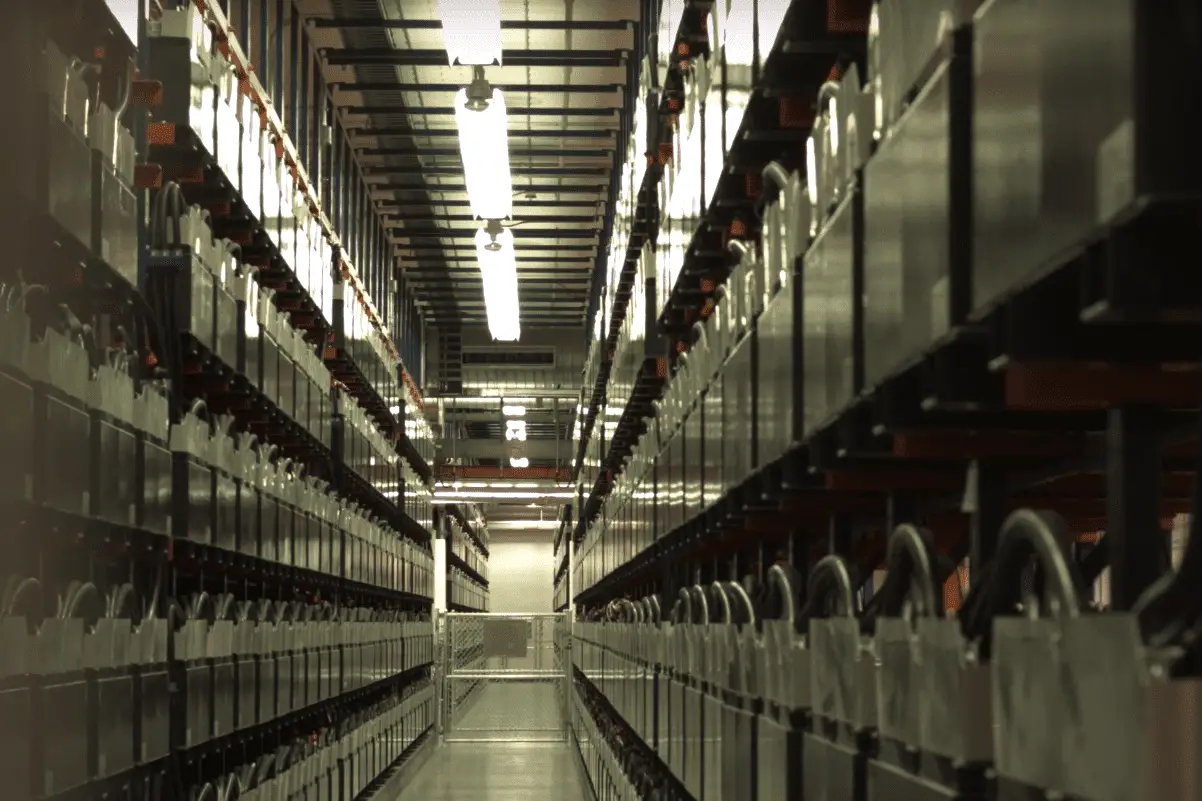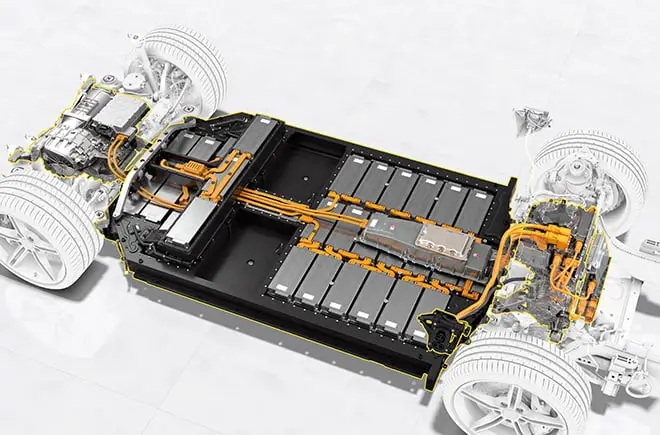Electric vehicle innovation has recently changed the world of transport. It has increased the demand for electricity in its operations, consequently pushing manufacturers to produce high-voltage batteries. Due to competition, high-voltage batteries to make electric vehicles more reliable are the only way manufacturers find a market for their products. However, high-voltage batteries were vital in electric cars and other heavyweight industrial equipment.
This has put high-voltage batteries in high demand in various sectors where they are used. When we look at the battery with the most voltage, the number of cells in its packs must come to mind. The cells are always connected in series inside the packs, contributing to the high voltage that makes a battery known as a high-voltage battery. The cells can be prismatic or cylindrical in shape, making them suitable for operation when connected in a series arrangement to store power inside the battery packs.
High-voltage batteries always possess high electrical energy density, which measures the capacity ratio of the battery against its weight. The batteries also pose high platform discharges. Therefore, Lithium-ion Polymer HV batteries have the most electric voltage. The batteries are more intensive in their energies. For this reason, they use more electrical power than the traditionally used Lithium-ion Polymer batteries (LiPo). These make the Lithium-ion Polymer HV batteries have an increased capacity of around 15%. These batteries have many applications.
Which Battery Has the Most Voltage?
Grid-level energy storage batteries have the highest voltages. The Saft battery in Fairbanks, Alaska, supplies 26 MW for 15 minutes with 3440 Ni-Cd cells connected in parallel series. The DC link voltage in this battery varies from 3440V to 5200V.

High Voltage Batteries in Electric Vehicles
High-voltage batteries are widely used in electric vehicles to meet customer needs in the competitive market, like those in other gas-powered vehicles. When used in electric cars, their main aim is to increase their mileage per unit charge. Because of this, there is a high need for high-voltage batteries to improve the mileage of these vehicles.
What is the car battery voltage?
Typical car battery voltage can be from 12.6 to 14.4 V. The Resting voltage is 12.6 V, while the voltage in the electric car run increases to 14.5 V. However, in 2022, we will see new electric cars with up to 800 V voltage, such as the Porsche Taycan.

The battery with the highest nominal voltage recently presented in the Electric vehicle market has a nominal voltage of 800V. Therefore, this high voltage level of between 400V and 800V efficiently stores more electrical energy to run and support the vehicle’s acceleration.
High Voltage Batteries in the Construction Industry
These high-voltage batteries are used in construction equipment that performs heavy-duty operations in the construction industry. Such equipment is always heavy and consumes a high amount of power. Most of the equipment uses high-voltage batteries of up to 800V. In addition, high-voltage batteries, which are medium in size, are also used in construction equipment such as cranes and electric excavators. The batteries supply power to the equipment, eliminating the need to balance the hydraulic arm of the excavator using counterweights.
The technical aspect of High-voltage batteries
When increasing your battery pack voltage, you can also consider other benefits apart from its specific power. One of the benefits is the thinner copper cables you will require when handling high energy. When the smaller copper cables have thick insulation, they compensate for the packs’ high voltages. This will improve the battery pack’s efficiency and lower the cost.
However, always observe the safety protocols and measures when handling the copper cable. Even though the wires are well insulated, they may still cause harm. Some cables may become more harmful when carrying power above 100V despite being protected. Therefore, being cautious and considering additional measures is essential to avoid electrical injuries that can sometimes be fatal.
The benefits of High Voltage Lithium-ion Batteries
The use of these High Voltage batteries has many benefits due to their design features that make them more reliable in service; these benefits include;
Lithium-ion batteries have higher performance, making them capable of working under a single operation. The battery also has minimized voltage drop, making it more efficient when supplying power. In addition, these batteries have reduced heating problems. These heating problems, a common issue for many batteries, permanently damage the lift truck of many batteries, reducing its lifespan. Therefore, when you purchase a Lithium-ion battery, you will be free from overheating. Furthermore, the high-voltage lithium-ion batteries are portable and have better lifting speeds under all discharge levels.
The cost of Ownership of Lithium-ion batteries is relatively low.
Using these batteries will save about 20% to 40% of your energy cost between 2 to 4 years compared to using lead-acid or diesel energies. In addition, the life cycle of a high-voltage lithium-ion battery is almost three times longer than that of a lead-acid battery. These batteries have an excellent energy conversion that will reduce your electricity use by up to 30%. Using these batteries will save on service or labor contract money you used in watering and changing other batteries. Furthermore, high-voltage lithium-ion eliminates the need to spend on fantastic charging ports and warehouses.
High voltage Lithium-ion is highly safe and sustainable.
Using this high-voltage lithium-ion eliminates most of the risks you may encounter when changing heavyweight batteries during every shift. It is also accessible from spills or acid fumes, a big issue in lead-acid batteries. For this reason, you will not have to worry about any harm caused by acid fumes when using the battery. Furthermore, this battery is 99% recyclable; therefore, it will reduce your over-dependent electricity with less or no waste. Thus, the Voltage Lithium-ion battery will guarantee a satisfactory service that will meet all your electricity needs when installing it.
Conclusion
High voltage Lithium-ion batteries have proven to be the batteries with the most voltage in their application areas. They are more energy-intensive, making them have a more excellent performance. They are efficient and have a longer lifecycle, almost three times that of lead-acid batteries. In addition, the high voltage in these batteries has increased the mileage of electric vehicles when used to provide power for running and support the vehicles’ acceleration. Because of this, high voltage Lithium-ion batteries have proven to be the best and most reliable batteries today. Therefore, it is an energy source worth investing in to eliminate energy shortages at home.
